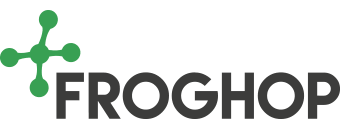Conducting due diligence is important in any business, but it’s understandably crucial regarding products consumers eat and drink. There will also be occasions when you need to share information about your product and process as part of doing business. So let’s look at what you need to do when it comes to due diligence for food safety.
What is due diligence for food safety?
In food safety, due diligence refers to being able to prove that your business has taken reasonable steps to prevent food safety breaches. This means conducting all relevant checks of each element of your food business.
If your business ever faces a legal dispute around food safety, a due diligence defence will protect your product and business. Therefore you should ensure that your systems are sufficient to prove you did everything possible to prevent a breach. On a more positive note, it also means you’re setting your business and processes up correctly and minimising the risk of things going awry.
What is an offence?
While the Food Safety Act 1990 outlines offences in detail, the main provisions include: food injurious to health (Part II, Section 7); selling to the purchaser any food not ‘of the nature or substance or quality’ demanded by the purchaser (Section 14), such as mislabelled ingredients or food sold as organic when it’s not; and, falsely describing or presenting food (Section 15). There are also the Food Labelling Regulations 1996 to consider.
Managing due diligence
At various points when developing, launching and selling food and drink products, you’ll need to provide specific information to others. At Froghop, we always recommend you start and maintain a due diligence folder (virtual or otherwise) as soon as possible. This means that all the information you might need to share with an Environmental Health Officer, retailer, customer, or even the Advertising Standards Authority is at hand. Consider it part of running and protecting your business as well as a file of evidence.
Your due diligence file
The following is an overview of what you should include in your due diligence file. For more detailed instructions check out our webinar.
Start by looking at the product. For traceability, you will need to keep information about what goes into it, the packaging and its composition, and the quality. You’ll need a system in place for withdrawal or recall of your product if necessary, as well as to notify consumers and members of your supply chain should this happen.
The importance of proper due diligence management cannot be overstated. You’ll need to cover your presentation and claims, premises and facilities, staff training, company information, contracts, insurance, licenses to trade and more besides too. Our Due Diligence Checklist is a handy starting point and reference – you can download it here.
